The Deregulator?
Wary libertarian enthusiasm greets Donald Trump's ambitious regulatory reform agenda
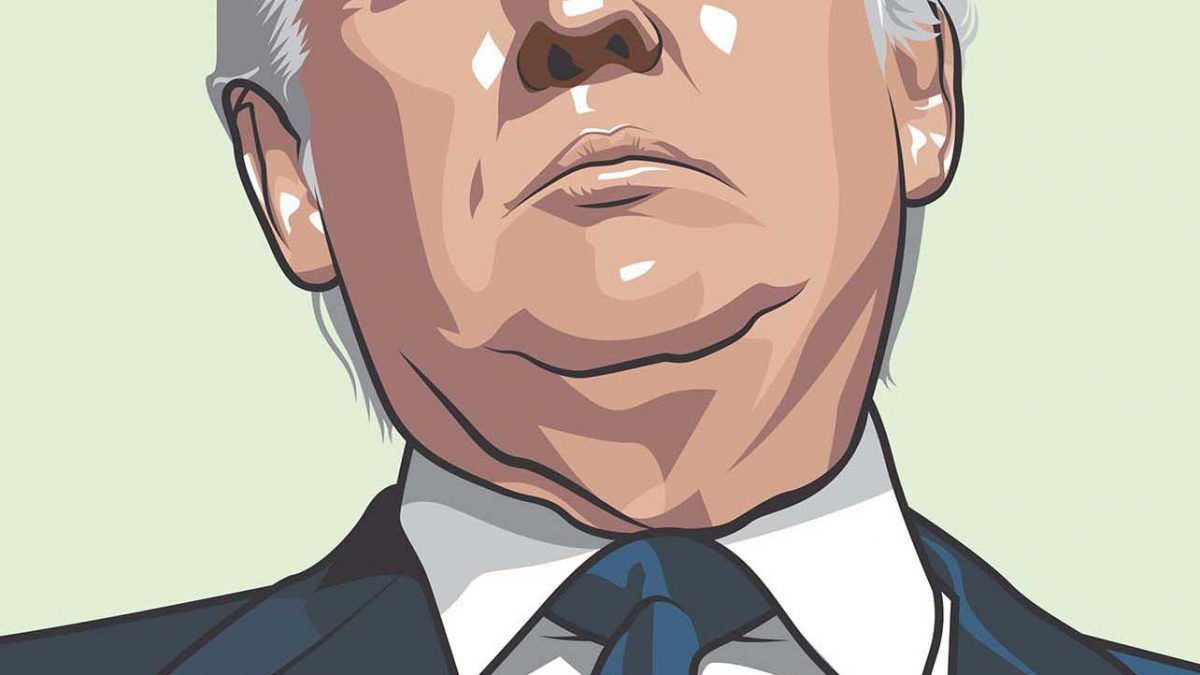
On December 6, 2016, the Cato Institute, Washington, D.C.'s venerable libertarian think tank, held its first staff meeting since the election of Donald Trump. Normally such office gabfests tend to be "boring" and "routine," says Peter Van Doren, longtime editor of the Cato-published magazine Regulation. But after a presidential campaign that was anything but standard, featuring an improbable victor whom Cato Executive Vice President David Boaz had called "an American Mussolini" in National Review, emotions were running a bit high.
Peter Goettler, the cheery investment banker who became president and CEO of Cato in April 2015, took the temperature of the room. Any advocate for limited government can rattle off a list of Trump's demerits—his "know-nothing protectionism" (in Boaz's phrasing), his restrictionist/alarmist views on immigration, his unwillingness to confront the long-term drivers of government spending growth, his occasionally hostile approach to individual rights, his Great Man theories of governance, his carelessness with the truth, and so on. But professional libertarians are accustomed to feeling alienated by mainstream politics, and still manage to get up in the morning. So Goettler wanted to know: Who here can imagine themselves working in the same direction as Trump on those issues he has a chance to get right?
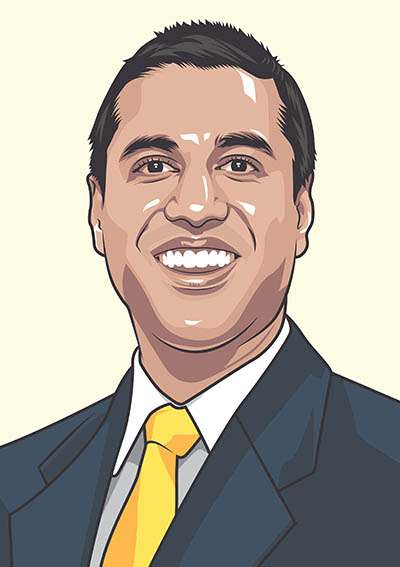
A clear majority of the room indicated not me, after which came what Van Doren described as an "intense debate." In the end, Goettler reminded the Catoites to avoid succumbing to the political passions of the moment. "One of the things I said in that meeting," he recalls, "is that your personal Twitter feed is unlikely to change the course of the republic, but your policy work might. So be focused on what counts."
Few things have mattered more to libertarian policy activists over the past half-century than deregulation. Rolling back government restrictions on individual and corporate behavior, breaking up state-backed cartels, getting bureaucrats out of the price-setting business, and allowing private entities to compete for services routinely monopolized by government—these have long been fundamental goals of libertarian organizations including Reason Foundation, the 501(c)(3) nonprofit that publishes this magazine and engages in public policy research that promotes choice and competition. The reasons for eliminating federal regulations can be many: Well-intended rules frequently result in harmful unintended consequences, time and money directed to compliance or workarounds could often be better spent elsewhere, and one-size-fits-all decrees from Washington rarely incorporate the kind of local knowledge that individuals and companies possess about how their own business works best. Libertarians have made these arguments early and often to every new president, but since the deregulatory salad days of Jimmy Carter and Ronald Reagan, few administrations have applied these insights into their policy making.
But as the initial shock of the 2016 election results gave way to the normal D.C. stuff of transition teams, Cabinet nominees, and policy rollouts, the city's libertarian policy wonks began to rub their eyes and adjust to a surprising new vision: a Trump administration that was stocking up on faces who have long worked to expand freedom by contracting the regulatory state.
"I don't think that we ever envisioned that we would be supplying staffers to this semi-free market, semi-populist president," Frayda Levin, board chair of Americans for Prosperity and a Reason Foundation donor, told Politico in December. "But we're happy that he's picking people who have that free market background, particularly because on many issues, he is a blank slate, so anybody with expertise is in an amazing position to shape his agenda."
Trump's agenda-shapers in the Cabinet include Betsy DeVos at Education, Elaine Chao at Transportation, Rick Perry at Energy, and Tom Price at Health and Human Services. All are longstanding critics of the federal departments they now head. On the agency level, the Federal Communications Commission (FCC) is now led by the deregulator Ajit Pai, who is already rolling back its aggressive encroachment into internet-related issues. The Environmental Protection Agency (EPA)—which many libertarians see as the most aggressive regulator in the federal bureaucracy—is being managed by an administrator, Scott Pruitt, who has previously described himself as "a leading advocate against the EPA's activist agenda." And the Food and Drug Administration (FDA) could soon be run by physician Scott Gottlieb, who has spent a career railing against the agency's agonizing process for approving new drugs.
President Trump devoted three paragraphs of his first big speech to a joint session of Congress—the quasi-State of the Union made by a newly inaugurated president—to saving lives through FDA reforms, a topic that libertarians, often alone in the wilderness, have been howling about for years (and that previous presidents have left untouched in their SOTU addresses). In highlighting the case of Pompe Disease survivor Megan Crowley, who was in attendance because her father helped discover the drug that would eventually extend her life, Trump said, "Our slow and burdensome approval process at the Food and Drug Administration keeps too many advances, like the one that saved Megan's life, from reaching those in need. If we slash the restraints, not just at the FDA but across our government, then we will be blessed with far more miracles just like Megan. In fact, our children will grow up in a nation of miracles." A more sweeping evocation of deregulatory virtue you will rarely hear.
President Trump devoted three paragraphs of his first big speech to a joint session of Congress to saving lives through FDA reforms, a topic that libertarians, often alone in the wilderness, have been howling about for years.
Two weeks later, Trump put taxpayer money where his mouth is, unveiling a budget blueprint that cut spending at every non-military/security-related agency in the federal government, including 31.4 percent from the EPA, 28.7 percent from the State Department, and 20.7 percent each from the departments of Agriculture and Labor. By any comparative measure, the president's first budget reinforced the promise made by his adviser, Steve Bannon, at this year's Conservative Political Action Conference to undertake a "deconstruction of the administrative state."
Below the headline-generating clatter of travel bans, wiretap disputes, Russia revelations, and Obamacare reboots, a parallel story is emerging: Washington's regulatory reformers, largely sidelined for the past quarter-century, are infiltrating the halls of federal power and attempting to engineer the most ambitious executive-branch overhaul in at least three decades.
On the day of Trump's joint address, I paid a visit to the Competitive Enterprise Institute (CEI), a libertarian nonprofit focusing on regulatory issues, to speak with Myron Ebell, director of the institute's Center for Energy and Environment. Ebell had been the Trump transition team's point man at the EPA, a personnel selection witheringly characterized by former League of Conservation Voters official Daniel Weiss as "like picking Colonel Sanders to protect your chickens." So what can libertarians expect from the Trump administration? "I think," Ebell says, "he could be the most serious deregulatory president ever."
Exhuming Congressional Review
The Congressional Review Act (CRA) gives Congress 60 working days to overturn any new agency regulation. When it was signed into law by President Bill Clinton in March 1996, backers touted the reform as a necessary corrective to an executive branch run amok. "As more and more of Congress' legislative functions have been delegated to federal regulatory agencies," wrote co-sponsoring senators Don Nickles (R–Okla.), Harry Reid (D–Nev.), and Ted Stevens (R–Alaska) in a joint statement, "many have complained that Congress has effectively abdicated its constitutional role as the national legislature in allowing federal agencies so much latitude in implementing and interpreting congressional enactments. In many cases, this criticism is well founded."
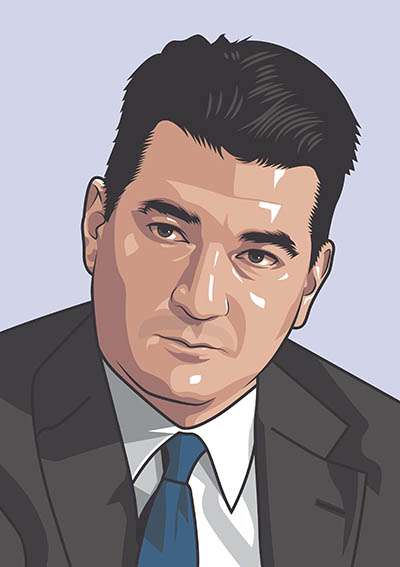
Armed with this restraining order, the legislative branch over the next two decades successfully used the CRA to reassert its authority over overweening regulation exactly once: in March 2001, to overturn a November 2000 rule by the Occupational Safety and Health Administration requiring employers to prevent ergonomic injuries in the workplace. (The 60-day counter runs only when Congress is in session, so in calendar terms the window for action is routinely three times as long.) Five other attempts to rebuke overzealous regulators were vetoed by President Barack Obama during his last two years in office, making the CRA a mostly dead letter. Until now.
As of April 7, Trump had already signed into existence 11 Congressional Review Act repeals: a Security and Exchange Commission rule requiring publicly traded resource extraction companies to disclose payments made to foreign governments; a Department of Interior framework governing stream runoff of coal mining operations; a Labor Department prohibition on federal contracts being awarded to companies with a history of labor violations; a Bureau of Land Management directive giving the federal government a bigger role in land-use decisions; two Department of Education measurements for school performance and teacher training; a Labor Department limitation on states drug-testing those receiving unemployment benefits; a U.S. Fish and Wildlife restriction on fishing and hunting on national wildlife refuges; a Labor Department directive on employer injury/illness record-keeping; and a Social Security Administration policy to share the names of people it classifies as having a mental illness with the federal gun database in order to deny them access to weapons. (The latter move came after some serially dishonest demagoguery from the likes of MSNBC and The New York Times, which used headlines such as "Congress Says, Let the Mentally Ill Buy Guns.")
Congress has approved two additional CRA rollbacks that were awaiting the president's signature at press time. According to the Congressional Research Service, every Obama administration regulation published in the federal register since June 13, 2016, was eligible for such review by the 115th Congress.
"By any empirical measure, it is a level of activity that has never been seen," regulatory specialist Curtis Copeland, formerly of the Congressional Research Service, told The New York Times in early March. "It is unprecedented."
So with Republicans controlling Capitol Hill, does that mean we can expect a new era of legislative decontrols, like what happened in the late 1970s and early 1980s in the airline, rail, trucking, banking, and brewing industries?
Don't hold your breath, says Regulation's Van Doren.
"What deregulation meant [back then] was we altered statutes," he explains. "Congress rewrote the laws." It's the underlying legislation, which instructs regulatory agencies to spend money and promulgate rules, that needs to be repealed, not just the odd stinkbud blooming at the end of the process. Even radical-sounding proposals, like the one-sentence bill introduced in February by the libertarian-leaning Rep. Thomas Massie (R–Ky.) to close down the Department of Education, ultimately "doesn't do anything," Van Doren argues. "You know why? The statutes!"
"Congress likes to rail against the bureaucracy because that gives it something to do…to help constituents deal with this oppressive, horrible bureaucracy," Van Doren says, "which Congress, in fact, set up."
If you don't want federal money to be spent on education, he says, "you have to rewrite and/or eliminate the Elementary Secondary Education Act of 1965.…The Department of Education simply implements the ESEA, so if you eliminate the implementer, the law still exists." ("It's a fair charge," Massie acknowledges. "I had to decide whether to write a one-sentence bill that I could get a lot of people to agree with, or a very involved bill that talks about what happens to all that funding, and then people start disagreeing.")
There is an argument in regulatory economics that the major "price and entry" rules, which once dictated which private competitors were allowed into a market and under what conditions, offered a sort of low-hanging fruit for deregulators to pluck during the uniquely desperate policy conditions of the late '70s. (Why was that such a fertile time for deregulation? "Inflation was 12 percent a year," Van Doren explains, "and politicians competed over 'What can I do for my constituents to reduce prices?'") Meanwhile, regulators shifted from price and entry to health and safety, and particularly the environment, producing very different types of regulations and politics.
"Easy deregulation is gone, because now it's just discussions over the cost and benefits of health and safety, and everyone is uncomfortable with that," Van Doren maintains. "What you never hear anybody talk about is 'Let's rewrite the Clean Air Act.' You'd have to tell suburban women and suburban men that there are trade-offs between how dirty the environment is and how much we are going to spend on dealing with that problem. And you know what nobody wants to talk about, even on the right? Those trade-offs."
It's true that Donald Trump has called for taking a machete to regulatory agencies' budgets, beginning with the EPA. It is also true that presidents don't pass budgets—legislatures do—and that it's been two decades since Congress managed to pass the 12 annual appropriations bills that the Congressional Budget Act of 1974 requires. At a time when lawmakers of both parties have become addicted to last-minute, gargantuan up-or-down spending bills that almost no one reads in full, the president is asking the most politically sensitive branch of government to approve the deepest funding and staffing cuts the EPA has ever seen, all while surviving an onslaught of headlines such as the San Francisco Chronicle's "Trump budget would make America dirty and sick again."
"Now, is Congress going to go along with that?" CEI's Ebell asks of the cuts the president is requesting. "Well, no."
Trump's budget blueprint keeps year-over-year federal spending flat by trading $63 billion in agency spending reductions for a $60 billion increase for the Pentagon and Homeland Security. "I'll be shocked if Congress figures out a way to cut that part," says Ike Brannon, a Bush-era official at the Office of Information and Regulatory Affairs. "I'm going with 5 percent odds," says Massie.
"If [Trump] even keeps 80 percent of his promises, this will be the biggest change-direction we've ever had in the way of getting rid of the administrative state," says CEI's Myron Ebell. "Now, if he keeps his promises on some other issues, like trade, you know, I'm scared to death."
There are perfectly comprehensible structural incentives for politicians to condemn the regulatory status quo with their words while maintaining it with their actions. "Congress likes to rail against the bureaucracy because that gives it something to do for re-election purposes, which is to help constituents deal with this oppressive, horrible bureaucracy, which Congress, in fact, set up," Van Doren says. Naturally occurring swamps are always the hardest to drain.
Reform in the Time of Hysteria
In the absence of demonstrated congressional will to cut agencies and rewrite laws, a cynic might predict that the legislative branch's forthcoming contributions to the would-be renaissance in deregulation may amount to nothing more than a dozen or so CRA repeals during the first half of 2017, and maybe some rhetorical encouragement from the sidelines when cameras are rolling. But that judgment would be premature. Procedural overhauls are being debated that, if adopted, could have more far-reaching implications than the bulk of actions currently being contemplated by the executive branch. While flying mostly under the media radar during a tumultuous first two months of Trump controversies, these process revamps have generated a steady din of alarm among progressive activists. "Trump is temporary," Environmental Working Group Vice President Scott Faber warned at Politico in March. "Regulatory reform is forever."
Chief among the proposals is the Regulatory Accountability Act (RAA), which passed the House by a party-line vote in January but which at press time had yet to be introduced in the Senate by sponsor Rob Portman (R–Ohio). With a slim 52–48 GOP advantage in the upper chamber, any reform bill will need to peel off eight members of the other party to prevent a filibuster, so Portman, who backed similar efforts throughout the Obama administration, is negotiating with red-state Democrats such as Missouri's Claire McCaskill and West Virginia's Joe Manchin to make the House's strong medicine go down smoother.
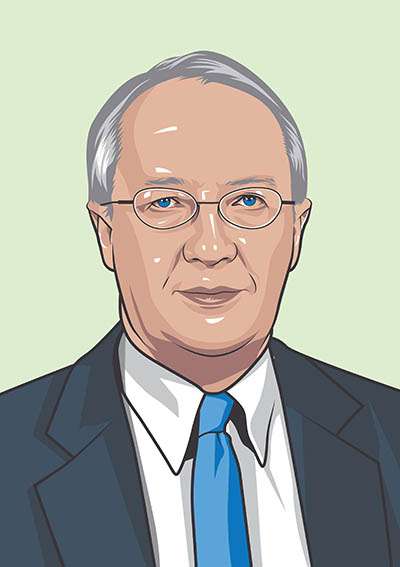
According to press reports, the Senate version of the RAA would require any new regulation costing north of a projected $100 million to be subjected to more stringent cost-benefit analysis, public input, economic monitoring, congressional review, and judicial circumspection. "The Senate is presented with a once-in-a-generation opportunity to pass much-needed modernization of the Administrative Procedure Act (APA), whose rulemaking provisions have remained virtually unchanged since it was enacted in 1946," a coalition of 616 business groups wrote to lawmakers in February. "We believe that federal regulations should be narrowly tailored, [be] supported by strong and credible data and evidence, and impose the least burden possible, while implementing congressional intent."
That rosy Chamber of Commerce view is not shared by activist groups, to put it mildly. "This is a sledgehammer aimed at everything federal agencies do to protect our health, safety and pocketbooks," Scott Slesinger, legislative director at the Natural Resources Defense Council, said in a statement after the House version passed. "This radical bill is designed to give industry a free hand to pollute, harm our health and engage in financial mischief. It will strike at commonsense federal rules—like energy efficiency standards—that save Americans money and protect the environment."
Pro-regulation and anti-regulation forces agree on one thing, though: Trump's January 30 executive order forcing agencies to "identify at least two existing regulations to be repealed" for every new one they propose is, compared to real process reform, a toothless publicity stunt. "I think it's a stupid rule," says Brannon. "It is a fake solution to a very real problem.…It's so easy to conceive of how the EPA could game 'two rules out for one rule in': You pass a whole bunch of half-million-dollar rules, and those are the rules you take off."
Similarly, no one takes literally the president's January 23 vow that his administration would cut regulations by at least 75 percent and "maybe more." The web of existing rules is simply too large, and the tools for hacking it back are too inadequate.
According to CEI's annual Ten Thousand Commandments snapshot of the regulatory state, 3,410 new rules were written into the Federal Register in 2015, adding to the 90,836 issued from 1993 to 2014. The group estimates that the cost to the economy of all those regulations is $1.9 trillion a year, more than 10 percent of GDP.
The options for rolling that back, roughly speaking, are:
1. Have a new president simply reverse any rules imposed by the stroke of his predecessor's pen. (At press time, Trump was poised to undo an Obama executive order requiring agencies to consider climate change when issuing environmental permits and another order prohibiting coal mining on public lands.)
2. Have the federal government withdraw from or settle litigation brought against its own regulatory actions.
3. Sign any CRA repeals.
4. Appoint deregulators to head up independent agencies such as the Federal Communications Commission, the Federal Election Commission, and so on, then cheer on their works.
5. Absent any congressional action on the underlying laws, engage in the laborious process, lasting an average of one to three years, of regulatory rulemaking.
Even after surviving all that, the result may fall short of campaign-trail promises, because regulations that mandate major changes in capital expenditure are essentially unrepealable—they've already been priced into the market. "In most areas, rolling back regulations doesn't buy you that much," says Brannon. "For instance, if you look at the EPA, and you say, 'Oh my gosh, we are going to roll back all these regulations on coal-fired plants that went into effect five years ago,' what does that buy you? It buys you absolutely nothing. Companies have already made these investments based on the rules on coal-fired plants. They have already made these decisions. They've mothballed coal plants.…It's over."
But the preponderance of deregulatory activity, no matter how individually limited its components are—the ongoing CRA repeals, Trump's rhetorical support, his executive order requiring each agency to appoint a regulatory reform officer, the Reform Accountability Act, even the Supreme Court appointment of Neil Gorsuch, whose most well-known bit of judicial philosophy is skepticism about deference to regulators—is combining to produce a climate of ongoing media hysteria.
A president with already historically low first-year approval ratings is seeing his regulatory agenda greeted with such headlines as "Leashes Come Off Wall Street, Gun Sellers, Polluters and More" (The New York Times) and "Under-The-Radar Legislation Threatens To Undermine Federal Protection Of Health And Environment" (Forbes). His attempt to overhaul the mass of regulations associated with the Affordable Care Act crashed and burned in the House of Representatives on March 24—a turn of events the president laid at the feet of libertarian-leaning Freedom Caucus members such as Rep. Justin Amash (R–Mich.), who objected to the bill's Obamacare-like provisions. It remained to be seen whether the effort will be resurrected, and in what form. Will Trump's deregulatory zeal, which has been more in evidence after the election than before it, survive further degradations of his popularity?
'I'm Scared to Death'
Even the most bullish among advocates of limited government will readily acknowledge that this unorthodox presidency could quickly go south for libertarians. "My feeling about Trump on energy, environment, and climate issues is that if he keeps all of his promises, if he even keeps 80 percent of his promises, this will be the biggest change-direction we've ever had in the way of getting rid of the administrative state," says CEI's Ebell. "Now, if he keeps his promises on some other issues, like trade, you know, I'm scared to death."
Trump's penchant for economic nationalism and deal-making has already come in direct conflict with his deregulatory agenda. On January 24 he signed both an executive order reversing the Obama administration's objections to building the Keystone Pipeline and another one instructing the secretary of commerce to develop "Buy American, Hire American" guidelines on any new infrastructure projects. "That can add up substantial costs," warns CEI transportation specialist Marc Scribner. "And really, it's local and state taxpayers who end up directly paying."
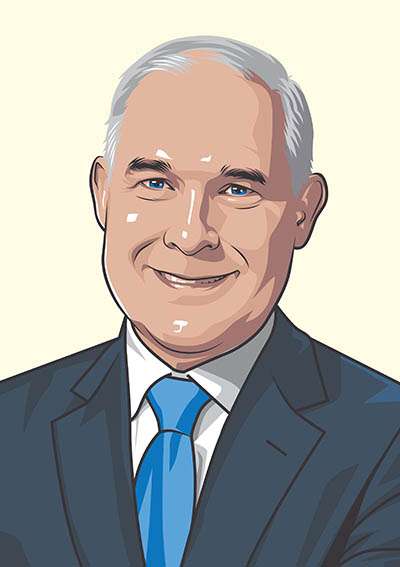
In the Keystone case, the Trump administration quietly dodged the controversy by exempting the pipeline's Canadian owner from having to buy U.S. steel. But the president has also promised a whopping $1 trillion in infrastructure spending, so anxious eyes will be looking to see what conditions are attached. "Now, I don't know how you add up to a trillion dollars without leveraging the private sector," Scribner says. "But unfortunately, Congress tends to like to spend lots of money and fund things rather than allowing the private sector to take the lead."
Libertarians are hopeful that in a Trump administration desperate for cost savings, the Department of Transportation will be a significant force for free market reforms. The agency now includes "good people that are supportive of the kind of approach that Reason Foundation favors," said Robert Poole, the foundation's longtime director of transportation policy, at a Reason Weekend event in March.
Trump's Department of Transportation transition team chief was Shirley Ybarra, a former Reason Foundation analyst who worked on toll projects as the secretary of transportation of Virginia. New U.S. Transportation Secretary Elaine Chao, who headed up the Labor Department under George W. Bush, was during the first Bush presidency "the lead author of a big report that favored tolls, user fees, and public-private partnerships," Poole said. "She also reiterated her support for these ideas during her confirmation hearing. She's one of the best-qualified people that was out there for that position." And at the end of February, the White House National Economic Council appointed a special assistant to the president for infrastructure policy: D.J. Gribbin, an "ardent champion of tolling, pricing, and public-private partnerships" (according to Poole) who has worked in the past as general counsel to the Department of Transportation as well as an infrastructure specialist for Macquarie Capital and Koch Industries. Gribbin is "the ace in the hole," Poole says.
The hope is that the transportation reformers surrounding the president will talk him out of cronyist tax giveaways to infrastructure companies and into lifting the $15 billion tax-exemption cap on private activity bonds, thereby allowing private capital to finance the construction and maintenance of projects. Additionally, the administration in its budget blueprint name-checked a proposal that Poole has long been working on to improve air travel: "Initiate a multi-year reauthorization proposal to shift the air traffic control function of the Federal Aviation Administration to an independent, non-governmental organization, making the system more efficient and innovative, while maintaining safety." Poole's bottom line: "I'm very optimistic, even though we don't have a real program defined yet. The straws in the wind look very promising."
Still, Trump's next legislative heave after the Obamacare-replacement challenge is supposed to be a "border adjustment tax," which is apparently the 21st century way to pronounce "increased tariff." And tariffs by definition make everything more expensive to produce, consume, and ship. "If we end up in a trade war, that is not going to be good for our transportation industry, which moves the goods that we need from our ports to consumers," Scribner says. "So even if the transportation industry gets modest regulatory reform, I don't think that would counteract the negative effects of trade protectionism."
So what will libertarians, including those at the magazine you're currently reading, do for the next four years? Probably the same as ever, only louder, and under more pressure by the main political tribes to decisively join one side or the other. "We're likely to have pretty significant areas of disagreement and agreement with almost whoever is in the White House," observes Cato's Goettler. The task is to "move things more in a direction of liberty where there's opportunity to do so, and to be willing to call…whomever out when things are moving in a direction against liberty."
Meanwhile, in the wake of the failed Obamacare repeal, Trump's inner circle was initially calling out the Freedom Caucus and libertarians by name. "It's all this theoretical Cato Institute, Austrian economics, limited government" stuff, Trump adviser Bannon was quoted as saying in a March 26 New York Times Magazine article. "Which just doesn't have any depth to it. They're not living in the real world."
In the short term, Washington's long-marginalized deregulators will be looking closely at the new administration's personnel decisions: Who will head up the Office for Information and Regulatory Affairs, the cost-benefit clearinghouse of the federal apparatus? Will free market types win deputy department posts, or will those be filled by cronies and political hacks? And how will unknown quantities like Ben Carson, now the Housing and Urban Development secretary, administer their new fiefdoms?
But on this one issue, amid the daily whiplash of Trump-related scandal and outrage, there are reasons for even wary libertarians to be hopeful. "The prospects for regulatory reforms are still very real to me at this stage on multiple fronts: financial, environmental, overall business regulations," Goettler says. "I think there's much more reason for optimism than we would have even thought in the early days after the election."
This article originally appeared in print under the headline "The Deregulator?."


Show Comments (21)